
August 30
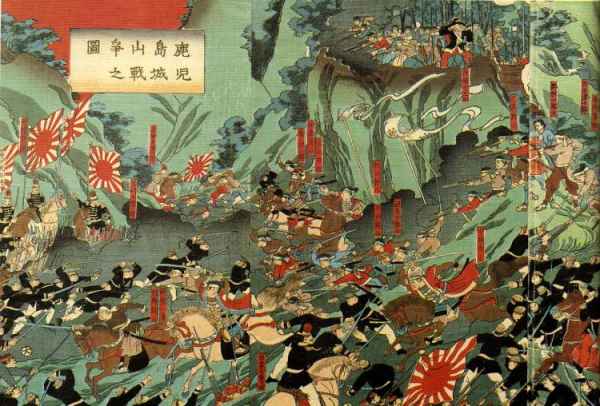
1882 Far East: The Treaty of Chemulpo is signed. Under its terms, the conspirators involved in the recent rebellion will be punished, the Koreans will pay 50,000 Yen to the families of the Japanese killed, pay 500,000 Yen to the Japanese government, issue a formal apology, and grant Japan permission to fortify station troops in their diplomatic legation in Seoul.
[See: Countdown to Infamy: Timeline to Pearl Harbor.]
1914 Battle of Tannenberg: The Battle of Tannenberg, one of history's significant battles, concludes after the Russian Second Army is enveloped and crushed by the Germans. The battle is notable particularly for a number of rapid movements of complete corps by train.
At last, on 28 August, Samsonov finally became aware of the peril he faced. Critically short of supplies and with his communications system in tatters, his forces were dispersed, and VI corps had already been defeated. Consequently he ordered a general withdrawal on the evening of 28 August.
It was too late for Samsonov's forces, as they scattered - many throwing down their weapons and running - directly into the encircling German forces. Relief from the Russian border in the form of counter-attacks were weak and insufficient.
95,000 Russians troops were captured in the action; an estimated 30,000 were killed or wounded, and of his original 150,000 total, only around 10,000 of Samsonov's men escaped. The Germans suffered fewer than 20,000 casualties and, in addition to prisoners captured over 500 guns. Sixty trains were required to transport captured equipment to Germany.
Samsonov, lost in the surrounding forests with his aides, shot himself, unable to face reporting the scale of the disaster to the Tsar, Nicholas II. His body was subsequently found by German search parties and accorded a military burial.
Hindenburg and Ludendorff were feted as heroes at home in Germany. Such was the lustre of the victory--combined with later albeit lesser successes at the First and Second Battles of the Masurian Lakes, that Hindenburg later replaced Erich von Falkenhayn as German Chief of Staff, bringing with him to Berlin Ludendorff as his quartermaster general. [For further details, Click here.]

1915 World War I: List Regiment: Gefreiter Adolf Hitler's 16 Reserve Infantry Regiment continue to occupy a position at Fromelles—pictured above in a drawing by Hitler—on a level field with water channels, willow trees and willow stalks; in the distance towards the enemy lines lies an insignificant wood with barbed wire entanglements. Under the direction of their defense-minded commander, Lieutenant General Gustav Scanzoni von Lichtenfels, the regiment works ceaselessly day and night to further fortify their position at Fromelles while fighting off repeated assaults by the enemy. [For further details, Click here.]

Fromelles Watercolor, 1915, by Hitler
1916 World War I: Various: List Regiment:
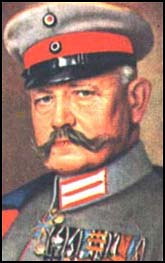
Paul von Hindenburg becomes chief-of-General-Staff in Germany.
Turkey declares war on Romania:
In order to enter the war on Allied side, the Kingdom of Romania demanded recognition of its rights over the territory of Transylvania, which had been controlled by Hungarians in most of the 2nd millennium, even though Romanians were a majority in Transylvania. The Allies accepted the terms late in the summer of 1916 (see Treaty of Bucharest). If Romania had sided with the Allies earlier in the year, before the Brusilov Offensive, perhaps the Russians would not have lost.
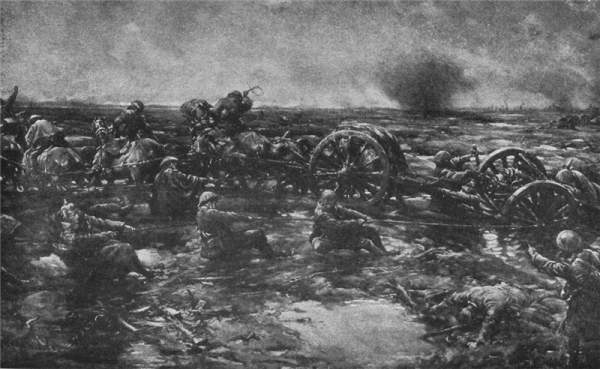
1917 World War I: List Regiment (July 22-September 8): Dispatch Runner Gefreiter Adolf Hitler serves at the front with 3 Company, 16 Bavarian Reserve Infantry Regiment during Phase 2 operations in Flanders. Most of their time in the trenches gas masks are worn, while English bombers attack from the air, and tanks attempt to advance over a long front through seas of mud. [For further details, Click here.]
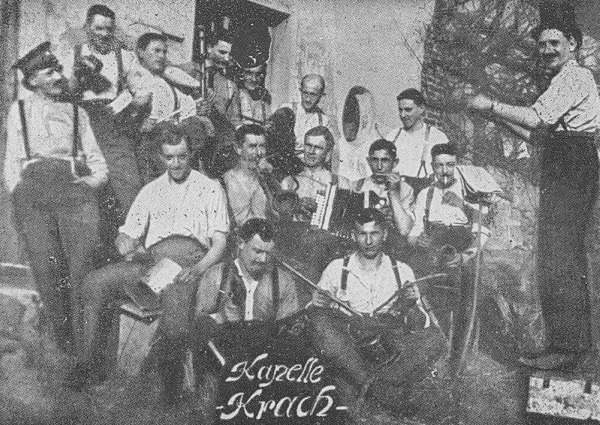
1918 World War I: Various: List Regiment (August 21-September 27):
General Pershing—having won his fight for a separate and distinct US army operating on its own assigned front—moves toward the Saint-Mihiel salient. The Americans are supported by an Allied air force of about 1,400 planes, American, French, Italian, and Portuguese, under US Colonel Billy Mitchell.
The Anzacs penetrate across the Somme—disrupting Ludendorff's plan for an orderly withdrawal. The German situation rapidly deteriorates, necessitating a retreat to the final position: The Hindenburg Line.
The Hindenburg Line was a vast system of defences in Northern France constructed by the Germans during the winter of 1916-17. It ran from the area around Arras all the way to beyond St Quentin, and consisted of deep and wide trenches, thick belts of barbed wire, concrete machine-gun positions, concrete bunkers, tunnels and command posts. It was considered virtually impregnable by the Germans. The British offensives of 1917-1918 were to prove otherwise.
The Belfort Ruse: On August 30, 1918, in Belfort, France, a small town near the German border, Colonel Arthur L. Conger of the American Expeditionary Force (AEF) plants a copy of a false operational order for an impending Allied attack in a wastebasket; as intended, it is later found and removed by a German agent. [For further details, Click here.]
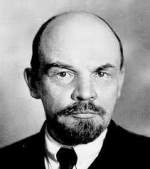
Russian Revolution: Lenin, new leader of Soviet Russia, after speaking at the Michelson factory in Moscow, is shot and wounded by Fanya Kaplan and her accomplice sister Dora, both supposedly members of the Social Revolutionary Party. He will never completely recover. Kaplan is quickly executed without trial.
On 30th August, 1918, Vladimir Lenin spoke at a meeting in Moscow. As he left the building Kaplan tried to ask Lenin some questions about the way he was running the country. Just before he got into his car Lenin turned to answer the woman. At that moment Kaplan fired three shots at him. Two bullets entered his body and it was considered too dangerous to remove them.
Kaplan was soon captured and in a statement she made to [the] Cheka that night, she explained that she had attempted to kill him because he had closed down the Constituent Assembly and was a "traitor to the revolution." Fanya Kaplan was shot by Pavel Malkov, a Baltic Fleet sailor, on 3rd September, 1918. Yakov Sverdlov, who organized the execution, gave instructions that she was not to be buried. He told Malkov: "her remains are to be destroyed so that not a trace remains." [For further details, Click here.]
1920 The Ukrainian Military Organization (UVO) is founded in Prague.
1927 Weimar: Standard Oil agrees to embark on a cooperative program of research and development with the German firm IG Farben.
The Standard Oil group of companies, in which the Rockefeller family owned a one-quarter (and controlling) interest, was of critical assistance in helping Nazi Germany prepare for World War II. This assistance in military preparation came about because Germany's relatively insignificant supplies of crude petroleum were quite insufficient for modern mechanized warfare; in 1934 for instance about 85 percent of German finished petroleum products were imported. The solution adopted by Nazi Germany was to manufacture synthetic gasoline from its plentiful domestic coal supplies. It was the hydrogenation process of producing synthetic gasoline and iso-octane properties in gasoline that enabled Germany to go to war in 1940--and this hydrogenation process was developed and financed by the Standard Oil laboratories in the United States in partnership with I.G. Farben. [For further details, Click here.]
1932 Weimar: Hermann Goering—with backing from the Catholic Center Party—becomes President of the Reichstag. Goering, at Nuremberg:
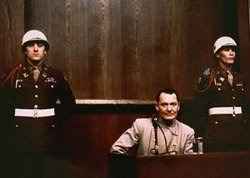
I consider the Leadership Principle necessary because the system which previously existed, and which we called parliamentary or democratic, had brought Germany to the verge of ruin. I might perhaps in this connection remind you that your own President Roosevelt, as far as I can recall—I do not want to quote it word for word—declared, "Certain peoples in Europe have forsaken democracy, not because they did not wish for democracy as such, but because democracy had brought forth men who were too weak to give their people work and bread, and to satisfy them. For this reason the peoples have abandoned this system and the men belonging to it." There is much truth in that statement. This system had brought ruin by mismanagement and according to my own opinion, only an organization made up of a strong, clearly defined leadership hierarchy could restore order again. But, let it be understood, not against the will of the people, but only when the people, having in the course of time, and by means of a series of elections, grown stronger and stronger, had expressed their wish to entrust their destiny to the National Socialist leadership.
[For further details, Click here.]1933 The Union of German National Jews in a published statement blames the World Zionist Organization for German Jewry's present predicament.
1938 Late in the month, Max Warburg, his wife, Alice, and their daughter, Gisela, depart Germany for New York. First they will make a stop-over in London. (See September 1938)
1939 Various:
Countdown to War: The British Foreign Office sends a message at 5:30 PM to Berlin after it receives reports of German sabotage in Poland. It says in part, "Germany must exercise complete restraint if Poland is to do so as well." Beck tells Ambassador Kennard that Polish mobilization will resume at midnight. By 4.30 PM. all Polish towns are covered with posters summoning all men up to the age of 40 to report for enlistment.
Ambassador Henderson is advised by the Home Office that Hitler's demand for the arrival of a Polish plenipotentiary that day is unreasonable. Henderson and Ribbentrop meet again, and this time come close to blows. Ribbentrop goes over Hitler's latest proposals, but Henderson claims Ribbentrop refuses to give him a copy of the text.
Unofficial peace envoy Birger Dahlerus continues his shuttle diplomacy:
I met Goering shortly after midnight on Wednesday, and he told me the nature of the proposals made to Poland. He showed me the note. I called up Forbes to give him this information. He then told me that Ribbentrop had refused to give him the note, after he had read it through very quickly. I went to Goering immediately and told him it was impossible to treat the ambassador of an empire like Great Britain in this way. I suggested to him that he should allow me to telephone Forbes and give Forbes the contents of the note on the telephone. I did this at about 1 o'clock on Thursday morning. [For the full text of today's proceedings, Click here.]
The great evacuation of children from British cities begins:
All you could hear was the feet of the children and a kind of murmur, because the children were too afraid to talk. Mothers weren't allowed with us, but they came along behind. When we got to the station the train was ready. We hadn't the slightest idea where we were going and we put the children on the train and the gates closed behind us. The mothers pressed against the iron gates calling, 'Good-bye darling'. (from an interview in 1988 with a teacher.) [For further details, Click here.]

Hitler agrees to Britain's request for a 24-hour extension to permit a Polish negotiator to meet with Joachim von Ribbentrop. From the official reply of the British Government to Hitler's letter of August 29, handed by Ambassador Henderson to von Ribbentrop at midnight:
His Majesty's Government repeat that they reciprocate the German Government's desire for improved relations, but it will be recognized that they could not sacrifice the interests of other friends in order to obtain that improvement. They fully understand that the German Government cannot sacrifice Germany's vital interests, but the Polish Government are in the same position and His Majesty's Government believe that the vital interests of the two countries are not incompatible.
Isoroku Yamamoto is appointed supreme commander of the Japanese fleet:
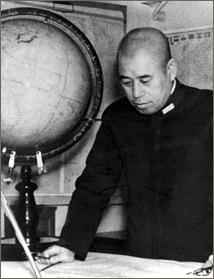
From Code-Name Down-Fall by Thomas B. Allen and Norman Polmar:
Of all the Japanese military leaders, Admiral Isoruku Yamamoto, Commander in Chief of the Japanese Combined Fleet, was perhaps the most aware of the quality and the industrial capacity of the enemy he would face if Japan went to war with the United States. He had been a member of the advisory team that accompanied Navy Minister Tomasaburo Kato to the 1921-1922 naval conference in Washington, DC. He had also studied English at Harvard University and later served as Japanese naval attaché in Washington. As a result of his firsthand exposure to the US potential for war, Yamamoto remained a part of the "Treaty Faction" throughout the 1920s and 1930s, believing that Japan could never match the United States in resources and that it was perilous to underestimate the American willingness to do battle, as many of his peers were prone to do.
But in January 1941, with Japan unalterably committed to a war with the United States, Yamamoto, a fervent gambler, heeded his instinct for high-risk moves and conceived the idea of a preemptive attack on the US Fleet at Pearl Harbor. He believed that the attack would be made 30 minutes after the declaration of war with the United States. Yamamoto studied the successful November 1940 attack, by a single British carrier with 21 Swordfish torpedo planes, which smashed the Italian fleet in harbor at Taranto. He then convened a small, select group of naval aviation officers to plan the attack on Pearl Harbor and organized the massive strike force that would carry out the attack. Yamamoto believed that if he could destroy the US Fleet's battleships and aircraft carriers, there would be no interference with Japanese offensive actions in the Pacific for six months. The carrier pilots of the strike force trained intensively, attacking targets in Kagoshima Bay on the southern Japanese island of Kyushu, which resembled Pearl Harbor.
1940 World War II: Various:
RAF 303 Kosciuszko Fighter Squadron begins operations in Britain when a Polish pilot shoots down a German bomber during a training flight (now that's training!). The 303 will be credited with 126 kills: the highest in Fighter Command.
In the first days of (Polish) independence a group of American pilots embraced the Polish cause and volunteered for service with the Polish forces. Sixteen Americans joined four Poles and a Canadian pilot to form the 7th Squadron of the Polish Air Force. In tribute to the famous Pole Tadeusz Kosciuszko, who had served with such distinction in the American Revolution, the squadron took his name. Thus was born the famous Kosciuszko Squadron of the Polish Air Force, a largely American contingent consciously repaying the great Pole for his service in the American cause by aiding Poland in its time of need. The squadron emblem, a distinctive Polish four-cornered cap and crossed scythes on a field of thirteen stars, combined powerful Polish and American symbols. The cap and scythes commemorated Kosciuszko's famous victory over the Russians in 1794, which owed much to the local peasantry's gallant charge, and the 13 stars represented the original American colonies.
[See: Why Did Hitler Lose The Battle of Britain?]The Arbitration of Vienna transfers half of Romanian Transylvania to Hungary, and part of the province of Dobruja to Bulgaria. Hitler had been concerned that these territorial disputes among the Balkan nations might give the Soviets an opportunity for further intervention, endangering Hitler's plans for the Romanian oil fields.
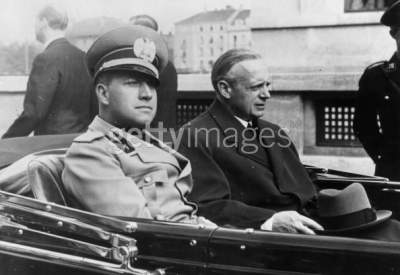
Ribbentrop had another sinister motive for his trip to Rome. On the eve of the arbitration, he wanted to get something in exchange from Ciano for dropping the Czecho-Slovak demands, and accepting Ciano's proHungarian stand. He tried to obtain Italy's immediate agreement for an alliance with Germany. The German plans for the conquest of East Central Europe had been ready. The idea of an offensive and defensive alliance was postponed but Ciano persuaded Ribbentrop to accept the Hungarian territorial claims without a plebiscite, drop the "Ribbentrop line,", and give the disputed cities to the Magyars. Ribbentrop spoke with hostility not only of the Hungarian government but of the entire nation.
1942 Battle of Alam Halfa: Rommel is repulsed at Alam Halfa, Egypt:
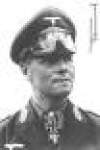
Rommel advanced around the southern end of the British line; he aimed to repeat the approach that had succeeded at Gazala, forcing the British to choose between encirclement and retreat. However, Montgomery had recognized Rommel's superiority in manoeuvre and responded accordingly. East of the line, the tanks of 13th Corps were deployed on and around the Alam Halfa Ridge, in effect serving as anti-tank guns. Rommel's advance was blocked; with fuel running low, he called off the attack on 2 September. No great victory for the British, Alam Halfa was nevertheless a bruising defeat for Rommel and a boost for Montgomery and the 8th Army.
1943 World War II: Taganrog on the Sea of Azov is evacuated by German troops.
1944 World War II: Various:
Romania: The [Red] army captures the important oil fields of Ploesti from the Germans, thus depriving them of a source of military fuel. Soviet troops enter Bucharest as a new Romanian regime declares war on Germany.
It is often alleged that the speed and totality of the German collapse were caused by Romanian betrayal. A study of the combat operations indicates that this is probably not correct. Romanian formations did resist the Soviet attack in many cases, but were ill-equipped to defend themselves effectively against a modern army, due to a lack of modern anti-tank, artillery, and anti-air weapons. In contrast to German claims, it appears that Romanian 1st Armoured Division did offer resistance against the Soviet breakthrough, but was quickly defeated. The surrender of Romania took place at a time when the Soviet Army already stood deep inside Romania, and the German 6th Army had been cut off from the rest of the Wehrmacht troops in Romania. [For further details, Click here.]
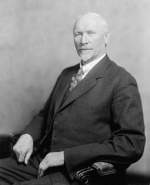
Field Marshal Smuts to Churchill: "Please do not let strategy absorb all your attention to the damage of the greater issue now looming up . . . . From now on it would be wise to keep a very close eye on all matters bearing on the future settlement of Europe. This is the crucial issue on which the future of the world for generations will depend."
France: General de Gaulle's Provisional Government is established in Paris.
1945 Various:
MacArthur arrives in Japan:
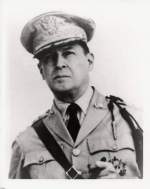
On this day in 1945, Gen. Douglas MacArthur lands in Japan to oversee the formal surrender ceremony and to organize the postwar Japanese government.
The career of Douglas MacArthur is composed of one striking achievement after another. When he graduated from West Point, MacArthur's performance, in terms of awards and average, had only been exceeded in the institution's history by one other person—Robert E. Lee. His performance in World War I, during combat in France, won him more decorations for valor and resulted in his becoming the youngest general in the Army at the time. He retired from the Army in 1934, only to be appointed head of the Philippine Army by its president (the Philippines had U.S. commonwealth status at the time).
When World War II broke out, MacArthur was called back to active service—as commanding general of the U.S. Army in the Far East. Because of MacArthur's time in the Far East, and the awesome respect he commanded in the Philippines, his judgment had become somewhat distorted and his vision of U.S. military strategy as a whole myopic. He was convinced that he could defeat Japan if it invaded the Philippines. In the long term, he was correct. But in the short term, the United States suffered disastrous defeats at Bataan and Corregidor. By the time U.S. forces were compelled to surrender, he had already shipped out, on orders from President Roosevelt. As he left, he uttered his immortal line, "I shall return."
Refusing to admit defeat, MacArthur took supreme command in the Southwest Pacific, capturing New Guinea from the Japanese with an innovative "leap frog" strategy. MacArthur, true to his word, returned to the Philippines in October 1944, and once again employed an unusual strategy of surprise and constant movement that still has historians puzzled as to its true efficacy to this day. He even led the initial invasion by wading ashore from a landing craft—captured for the world on newsreel footage. With the help of the U.S. Navy, which succeeded in destroying the Japanese fleet, leaving the Japanese garrisons on the islands without reinforcements, the Army defeated adamantine Japanese resistance. On March 3, 1945, MacArthur handed control of the Philippine capital back to its president.
On August 30, 1945, MacArthur landed at Atsugi Airport in Japan and proceeded to drive himself to Yokohama. Along the way, tens of thousands of Japanese soldiers lined the roads, their bayonets fixed on him. One last act of defiance—but all for naught. MacArthur would be the man who would reform Japanese society, putting it on the road to economic success. (History.com)
Hong Kong is liberated when the Royal Navy sails into Victoria harbor to accept the Japanese surrender.
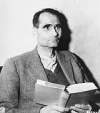
Nuremberg Tribunal: Rudolf Hess becomes the first of twenty-two German defendants charged as war criminals.
1946 Nuremberg Tribunal: Testimony is completed in the Criminal organization phase of the trial
Telford Tylor (Associate Trial Counsel for the United States):
So we turn to the war itself. The group of military leaders specified in the Indictment becomes much larger; we are no longer concerned only with the generals in Berlin, but also with the war lords who commanded the Wehrmacht in the field-names far more familiar to and feared by the peoples of the territories overrun by the Germans. Names such as Blaskowitz, Von Bock, Von Kluge, Kesselring, Von Reichenau, Von Rundstedt, Sperrle, and Von Weichs. What do the generals say in defense of the attack on Poland? Some of their statements, like Manstein's explanation that the Poles might "carelessly" attack Germany, are merely laughable. About the best they can say is that they expected that Poland would give in without a struggle. Were this a defense, its credibility is dubious.
Hitler himself had made it clear to the military leaders that it was not a question of Danzig and the Corridor, but of living space and increasing the food supply under German exploitation. The generals could have hardly expected the Poles to give themselves up entirely without a struggle, and Hitler had said that there would be war and no repetition of the Czech affair.
But in any event it is not claimed by the Defense that the generals hoped for a "Blumenkrieg." The witnesses for the Defense have agreed that the Germain demands on Poland were to be enforced by military threats and armed might. There is no evidence that the generals opposed this policy of sheer hold-up. In fact, it is clear that they heartily endorsed it, since the Polish Corridor was regarded by them as a "desecration" and the regaining from Poland of former German territory as a "point of honor." And it has never been a defense that a robber is surprised by the resistance of his victim, and has to commit murder in order to get the money.
1949 Cold War: The Western powers consolidate their sectors into the Federal Republic of Germany (West Germany), a constitutional democracy. The Soviets establish the Communist-run German Democratic Republic in their eastern zone.
1963 The U.S.-Soviet "hot line" goes into operation: Two months after signing an agreement to establish a 24-hour-a-day "hot line" between Moscow and Washington, the system goes into effect. The hot line was supposed to help speed communication between the governments of the United States and the Soviet Union and help prevent the possibility of an accidental war. [For further details, Click here.]
Edited by Levi Bookin (Copy editor) Click to join 3rdReichStudies Disclaimer: This site includes diverse and controversial materials--such as excerpts from the writings of racists and anti-Semites--so that its readers can learn the nature and extent of hate and anti-Semitic discourse. It is our sincere belief that only the informed citizen can prevail over the ignorance of Racialist "thought." Far from approving these writings, this site condemns racism in all of its forms and manifestations.
levi.bookin@gmail.com










Fair Use Notice: This site may contain copyrighted material the use of which has not always been specifically authorized by the copyright owner. We are making such material available in our efforts to advance understanding of historical, political, human rights, economic, democracy, scientific, environmental, and social justice issues, etc. We believe this constitutes a "fair use" of any such copyrighted material as provided for in section 107 of the US Copyright Law. In accordance with Title 17 U.S.C. Section 107, the material on this site is distributed without profit to those who have expressed a prior interest in receiving the included information for research and educational purposes. If you wish to use copyrighted material from this site for purposes of your own that go beyond 'fair use', you must obtain permission from the copyright owner.
Please Note: The list-owner and moderators of 3rdReichStudies are not responsible for, and do not necessarily approve of, the random ads placed on our pages by our web server. They are, unfortunately, the price one pays for a 'free' website.



